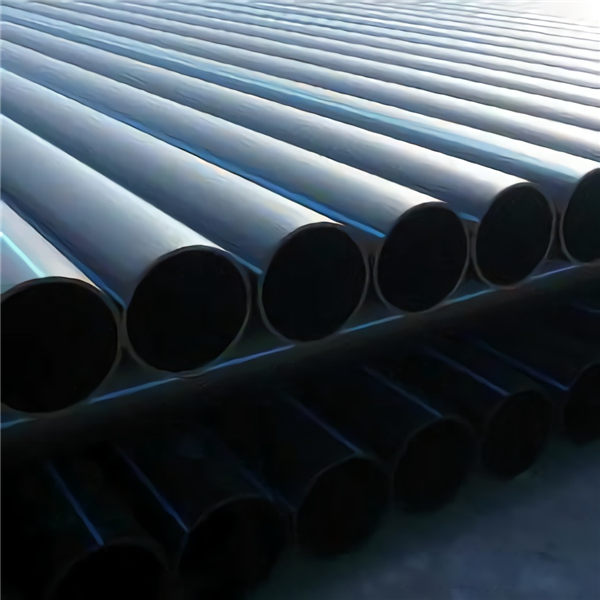Nov . 10, 2024 03:17 Back to list
Determining HDPE Sheet Thickness for Various Applications and Uses
Understanding HDPE Sheet Thickness A Comprehensive Guide
High-Density Polyethylene (HDPE) is a versatile thermoplastic widely used in various applications, from piping systems and containers to construction materials and packaging. One of the critical factors in the applicability of HDPE sheets is their thickness, which plays a vital role in determining the performance and suitability of the material for specific uses. In this article, we will explore the different aspects of HDPE sheet thickness, its implications, and why it is essential to consider when selecting HDPE sheets for your projects.
What is HDPE?
HDPE, or High-Density Polyethylene, is a type of polyethylene known for its high strength-to-density ratio. It is resistant to impact, chemicals, and UV radiation, making it ideal for outdoor applications. HDPE sheets are manufactured through a process that involves controlled polymerization of ethylene, resulting in a dense, yet lightweight material. This characteristic density provides the necessary strength and durability required for various industrial and commercial applications.
The Importance of Thickness
The thickness of HDPE sheets can significantly affect their performance, durability, and applicability. Thickness can range from a few millimeters to several centimeters, with the most common thicknesses being 1/8”, 1/4”, and 1/2”. When selecting HDPE sheets, it is crucial to consider how the thickness will impact the material's physical properties and the specific requirements of your project.
1. Strength and Durability Thicker HDPE sheets offer increased strength and durability, making them ideal for heavy-duty applications. For instance, in construction, thicker sheets are used for structural applications where they need to withstand significant stress and loads. Conversely, thinner sheets might be suitable for less demanding tasks, such as sign-making or light-duty containers.
2. Weight and Handling While thicker sheets provide more strength, they also come with additional weight, which can impact handling and installation. In applications where mobility is a concern, such as in temporary structures or portable solutions, opting for a thinner sheet might be more practical.
hdpe sheet thickness

3. Cost Considerations The thickness of HDPE sheets also affects their cost. Generally, thicker materials are more expensive due to the increased amount of raw material required and the energy costs involved in production. It is important to balance the need for strength and durability with budget constraints, ensuring that you choose the right thickness for your application without overspending.
4. Thermal Insulation Thicker HDPE sheets offer better insulation properties. They are less susceptible to temperature fluctuations, making them suitable for applications in environments with drastic temperature changes. In industries such as refrigeration or HVAC, the thickness of HDPE sheets can significantly impact energy efficiency.
Choosing the Right Thickness
When selecting HDPE sheets for your project, it is essential to assess the specific requirements and conditions of usage. Here are some factors to consider
- Application Type Identify the purpose of the HDPE sheet. Is it for structural support, storage, or a protective cover? The application will strongly influence the required thickness. - Environmental Exposure Consider the environmental factors the HDPE sheet will encounter, such as exposure to chemicals, moisture, or UV light. Thicker sheets may be necessary for harsher conditions.
- Mechanical Requirements Assess any mechanical stresses the sheets will need to withstand. If the application involves high impact or weight, a thicker sheet will likely be necessary.
Conclusion
In summary, the thickness of HDPE sheets is a critical factor that influences their performance, cost, and suitability for various applications. Understanding the implications of thickness allows you to make informed decisions when selecting HDPE sheets for specific projects. Whether you're involved in construction, manufacturing, or packaging, recognizing the importance of HDPE sheet thickness is essential for achieving the best results in performance and longevity. Always consult with suppliers or specialists to find the optimal thickness that meets your project requirements while ensuring cost-effectiveness and efficiency.
-
HDPE Natural Sheet: Durable, Food-Grade & Versatile Plastic Solutions
NewsAug.27,2025
-
Durable Glossy PVC Rigid Sheet | Premium High-Shine Panels
NewsAug.26,2025
-
Durable PP Rigid Sheet: Lightweight, Chemical Resistant Solutions
NewsAug.21,2025
-
PVC Grey Sheet for Extraction: Chemical Resistant & Durable
NewsAug.19,2025
-
Durable PVC Pipe Fittings for Plumbing & Irrigation Needs
NewsAug.18,2025
-
HDPE Steel Belt Reinforced Spiral Corrugated Pipe | High Strength
NewsAug.17,2025

